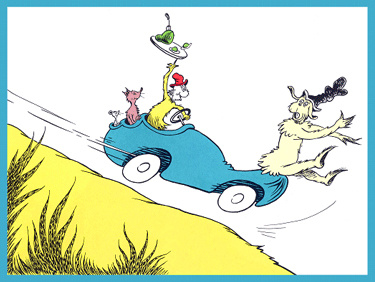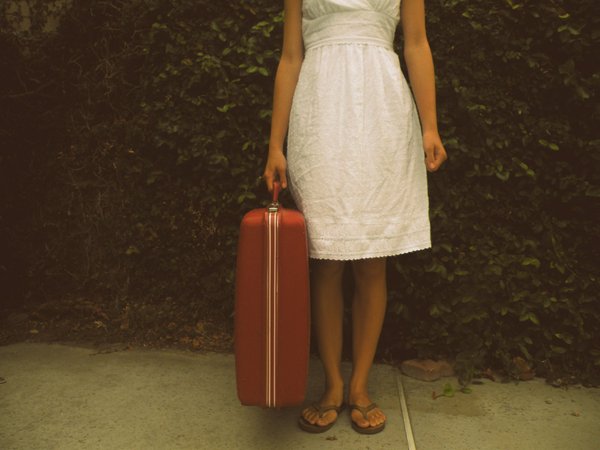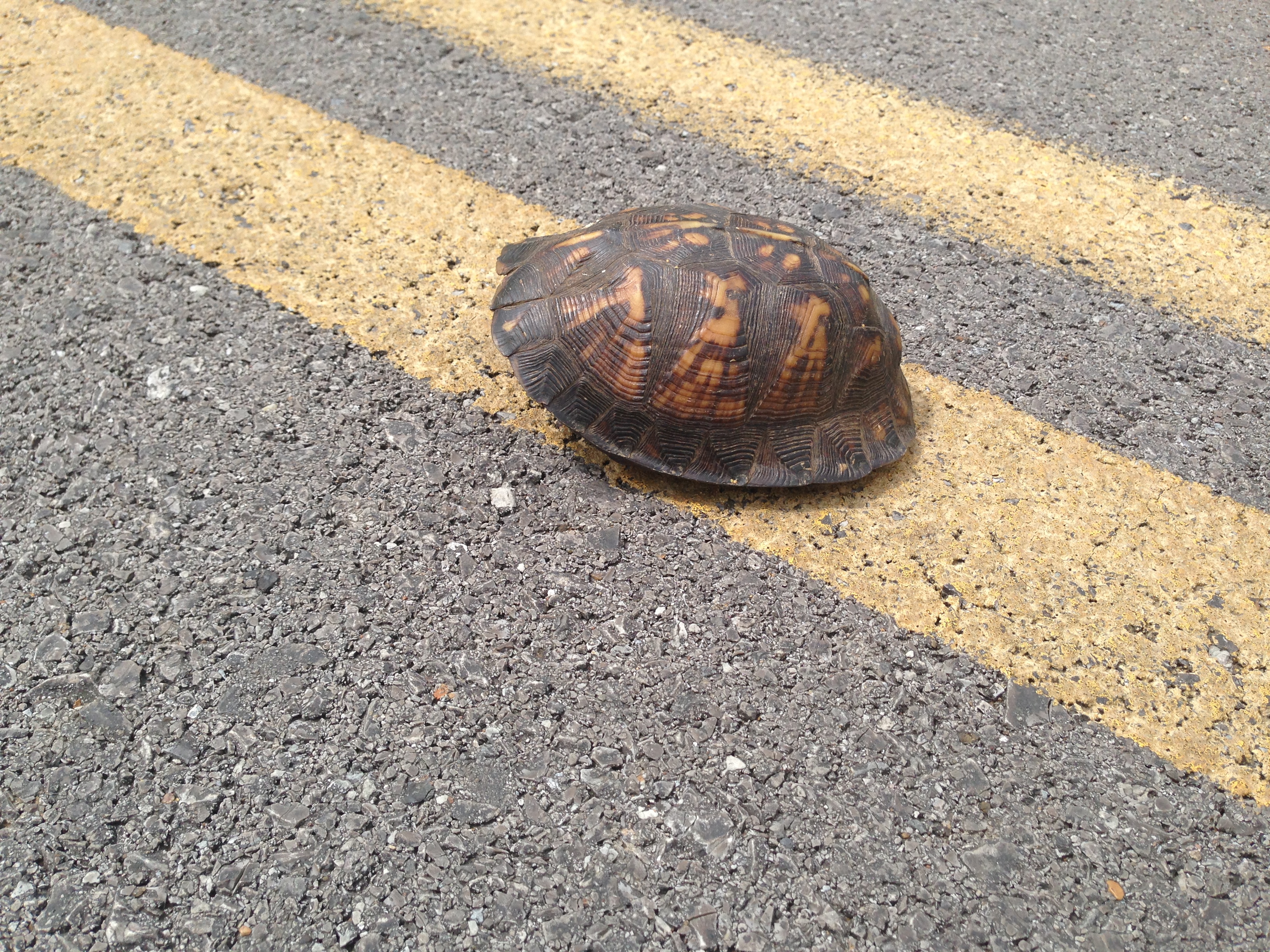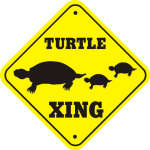
by bsquared5@aol.com | Sep 9, 2016 | Thoughts
I had a solid grasp of time before I became a parent. I knew how to keep appointments, schedule my day, and meet deadlines. Time was my minion. It was just lying in wait to stage a coup, it turns out.
Once the babies arrived, it was all about the clock. Meal time, bath time, play time, blessed, blessed nap time. I had to schedule the day around those things or we’d all pay the piper. My first born thrived on routine. She needed to know what was coming next, and counted time in “how many sleeps” before the next activity. The youngest was more of a play-it-by-ear sort. Sleep was to be avoided at all costs lest he miss the party.
Juggling these polar opposites was part of the universe’s scheme to undo me. Toddlers don’t live inside time. This is why you never, never tell a small child about an event more than 5 minutes before it happens. Their emotions are volcanic. Anticipation cannot be contained. When are we seeing Santa? Is it time for Santa? Can it be time for Santa now? Mommy, Santa, Mommy!!!! If you mention Christmas in casual conversation sometime in October, you will hear about it 157,000 times a day for the next three months.
Minutes mean nothing. Minutes are sands in the hourglass. An hourglass snagged by small, sticky fingers that gets tipped, shaken, and hurled into the wall. You hold up a finger to indicate these minutes while you’re on the phone: Just a minute, honey. While you’re checking out at the grocery store: Hold on a minute, sweetheart. While you’re in the bathroom: For the love of all that’s holy, IN A MINUTE!
Once, I was in a long line at the post office waiting to mail six heavy boxes of Christmas presents I’d stacked on the counter. As the line inched forward, I slid the boxes and my squirming toddler along together. She had to go potty, of course, because she absolutely did not have to go before we left home. “Can you wait a minute, punkin?” She sweetly nodded twice, and then let go, all over the counter and down the sides onto the floor. Turns out “wait a minute” in toddler-speak means “now.”
Parenting is full of now moments. Our bodies get in on the game at ground zero and we have nine months of having to eat now, sleep now, go into labor now. Parenting puts us at  the mercy of the universe’s clock, which looks more like the ones in a Salvador Dali painting. Babies demand soothing now. Small children want everything right now. From the time they can talk, we hear “Watch me! Are you watching? Look what I can do now!” It’s exhausting. Some days you spend wishing for time to speed up. Bedtime can’t come fast enough. If only they could walk, talk, be out of diapers, be more independent! Some days, the ones you just survive, last forever. Some days, the ones full of rocking and smiles saved just for you, you wish you could freeze frame.
the mercy of the universe’s clock, which looks more like the ones in a Salvador Dali painting. Babies demand soothing now. Small children want everything right now. From the time they can talk, we hear “Watch me! Are you watching? Look what I can do now!” It’s exhausting. Some days you spend wishing for time to speed up. Bedtime can’t come fast enough. If only they could walk, talk, be out of diapers, be more independent! Some days, the ones you just survive, last forever. Some days, the ones full of rocking and smiles saved just for you, you wish you could freeze frame.
Parenting is full of delayed moments. Eventually, as they grasp the concept of time, instead of making life easier and more organizable, somehow it backfires into you having to wait. The minutes you desperately wanted them to grant you, they give you in spades. Except with the words “five more” tacked on as a prefix. Time for bed! Five more minutes?? Time for dinner! Five more minutes! I’m almost to the next level/waiting for this show to end/on the phone/doing my hair/catching a Pokemon. Some days you spend wishing they’d catch up. Hurry up is an impossible dream. How long can it take a human being to finish a bowl of cereal? Find their shoes? Walk out to the car? For crying out loud, we are going to be late to school/practice/church/life again! Some days, the days you spend in a mad scramble of calendars and agendas, disappear in a dizzy haze of push and pull. You’re Alice’s white rabbit.
Parenting is full of later moments. Teens want everything later. When are you going to take out the trash? Later. Have any homework? I’ll do it later. When will you be home? Later. How about scheduling a college visit? Can we do that later? Gotta run, mom, I’ll text you later. Their time becomes more their own and their friends’ and less of it is reserved for you. The now’s have turned into “whenever’s.” It’s rare that they yell for you to “watch me!” More likely, they prefer privacy and hands-off. Still, you watch the clock with sleepless worry when they’re out late behind the wheel. You bite your tongue and try to wait to be invited to talk about the heartbreak or disappointment they’ve faced. With fewer demands on your time, there’s somehow the backward sense of time speeding by, those hourglass grains slipping through your fingers even as you try to gather them. Time warps: the days are long, but the years are short.
I’m fast approaching the empty nest, when I’ll return to being able to schedule my days and minutes sans interruption. Funny thing is, I stopped wearing a watch about a year ago. My oldest turns 20 this week–an age I can’t fathom. All the now’s, hurry up’s and later’s seem like both yesterday and ages ago. Suddenly, I want to pause: just a minute! Five more minutes? But time, in its own cadence, marches on.

by bsquared5@aol.com | Aug 29, 2016 | Thoughts
My oldest went sky diving a few weeks ago. She took off with a group of friends and jumped out of a perfectly good plane while, 2 hours away, her dad and I checked our phones nervously for news of a safe landing.
This is par for the parenting game. About three seconds after I became a parent, every cell in my being zeroed in on the safety of that little bundle. And about three seconds after that, my kids seemed to delight in finding new ways to hurt themselves.
I did all the right stuff–electrical outlet covers, car seats, a lock on the chemicals under the sink, talks about strangers, the internet, drugs and alcohol, driving skills, and safe sex. Still, they found ways to get broken arms, ding the car, and make asinine choices. From their first steps (right into the edge of the coffee table) to the scraped elbows from the epic wreck on the bicycle, 90% of parenting felt like I was chasing them around with bubble wrap, which they’d fling off and set fire to.
I put my 3-month-old down for a nap once, grabbed the baby monitor and went to our unfinished upstairs to paint some window frames. My husband came home for lunch that day, poked his head up to say hello, then left a short time later. When I heard the baby stirring on the monitor, I headed down to get her and discovered he’d locked the door, which was always our habit. I was trapped, the baby out of reach with no one around, no phone.
Panic! I calculated how many bones would break if I jumped out the second story window. Tried throwing myself into the door to break it down. (It doesn’t work like it does in the movies.) Everyone else in the cul de sac was at work, except… A solitary teen aged boy was playing basketball several doors down. I screamed at him, hanging out the window and waving my arms like an insane person until he came over, let himself into my house, and freed me from my prison. (Clearly, his parents had not taught him about Stranger Danger.)
This same child locked herself in her room as a toddler, and I sat on the other side of the door, our fingers touching underneath, frantically fumbling with the skeleton key. There is nothing so agonizing to a parent as being helpless to reach a child who needs you.
Ask any parent of a chronically ill child, watching as they’re wheeled to yet another procedure. Or the parents denied access to their adopted child month after month while foreign governments sift through red tape. Divorced parents who share custody with an irresponsible or abusive ex. Parents of deployed soldiers. It’s all part of the package, except, eager to reproduce, none of us ever reads the fine print.
A friend who recently dropped off her kid at college lamented to me that she couldn’t stop worrying about something happening and not being able to get to her daughter. I get it. My own is scheduled to study abroad next semester and I’ll admit to feeling similar twinges, especially after Paris, Brussels, and Nice hit the news cycle. But that’s fear talking. And fear is not the Boss of me. “Love is what we’re born with,” says Marianne Williamson. “Fear is what we learn here.”
Parenting is nothing if not risk. From the time they’re born, we perform a kind of catch and release with our hearts. It’s a tight-wire balancing act: keep them close, send them out; swoop in to rescue, let them learn to fall. The end goal is, after all, to work ourselves out of a job.
https://youtu.be/he3zaola7YE
Full disclosure: I grew up in the 70’s and 80’s when we rode our bikes miles from home (sans helmets) and drank straight from the garden hose The surgeon general was barely even a thing. I’m in favor of running barefoot, grabbing mane on a galloping horse, climbing trees, and “Swing higher, Daddy!”
Yes, there are moments of panic and anguish as a parent, times when you can’t protect your child or prevent every misstep. Did we really believe it would all be giggles and lollipops? We can’t fetishize safety because of a world that feeds off fear like it’s sugar. When did failure became the new F-word? Failure is the only way forward.
The flip-side of risk is where the good stuff hides out. The flip side of risk is connection, creativity, a life with flourish. Sometime, we have to let go of the back of the bike and quit running along behind. I’m too old for that noise, for one thing. And parenting was never supposed to be about my fear–it’s about their launch.

by bsquared5@aol.com | Sep 9, 2015 | Thoughts
My husband’s grandfather once held a job as an ambulance driver. This was back in the day when the nearest hospital was about an hour away and the town’s local ambulance also served as its Hearse, depending on the timing of the situation. Regularly, he would drive 100 mph on the interstate, sirens wailing. While he eventually gave up the ambulance gig, he still drove as if the sirens howled atop his Cavalier, well into his 80’s. I’m blaming my son’s driving on him. Kind of. Not really.
One by one, my father taught all five of us how to drive. We each learned the pedal coordination of a manual transmission. I was not allowed behind the wheel until I could successfully change a tire, find the hazard lights, and check the oil. He was calm but firm in his manner, frequently making acronyms out of instructions so they’d be easy to remember. TSBB = turn signal before brake. LOWR = lights on when raining. Everything’s an acronym in the military. “Be defensive,” he’d say. “You gotta watch out for Isadore Idiot.”
I can’t for the life of me figure out how he made it through five fledgling drivers without hard liquor, medication, or some unfortunate facial tics. Three years ago, our firstborn got her license. For the most part, teaching her went well. There was that time she drove our van down a shoulder-less road, steep ditches dropping on either side. For the next two days I couldn’t figure out why my right arm was so sore before it dawned on me that I’d been gripping the door handle, trying from the passenger seat to single handedly pull a 2000 pound vehicle away from the dropoff as it sped down the road.
The first time she merged onto an interstate, we were neck and neck with a semi, quickly running out of lane. My normally unflappable husband sat in the back seat behind her, a giant tire spinning beside his window, hoarsely screaming, “WE’RE NOT GONNA MAKE IT!” as my son obliviously played video games beside him. Once we finally merged, he directed her to immediately get off at the next exit and pull over, muttering under his breath that we’d almost wiped out the entire Blaylock line with that maneuver. Despite this, the daughter’s license was not so hair-raising for me.
The son, Fifteen, is another matter. I reasoned that all those years of riding tractors with his Papaw, zipping around on ATVs at the farm, and the superior hand-eye coordination he no doubt has developed from incessant video games should make this a walk in the park. True, if that park is Jurassic and there are velociraptors in the bushes.
Am I a perfect driver? No I am not. My record has some blemishes. A ticket here, a fender bender there. People often share knowing glances and accuse me of “making good time” on road trips. Still, passengers generally do not grip the armrests and pray out loud when riding with me.
I think it’s his demeanor. He is bright, happy, casual, and possesses no fear. Also, lately, he has decided to like the Electronica station on the radio. If you’re not familiar, this music–and I use the term loosely–is mostly repetitive synthesized beats that gradually ratchet up in intensity until you reach a “drop,” which you can tell by the seizure-inducing bass and change in tempo. He claims this music helps him concentrate. I claim it gives me an aneurysm.
Also, it could be that, while driving, he blithely poses curious questions that do not give me warm fuzzies. Such as: do you think you can you drive a car down the road backwards as fast as you can drive it forwards? Have you ever just pressed the gas all the way to the floor to how far the speedometer would go? These questions give me feelings similar to ones you might feel if your kid were to casually ask, “What, do you think, would be the fastest way to poison your parents where no one would ever know?” That is, suspicion and the slightest nudge of discomfort.
The other day, I agreed to let him drive around town to do some errands. It was not my finest hour. After about 45 minutes of my wise counsel and fielding comments like, “Well, that’s not how dad says I should do it,” I had one very small sinuous nerve left, and he was on it. We were sitting at a stop sign, the Electronica music was reaching an intense moment (if he’s going to play it on his own, he may as well play it while practicing), and the car in front of us moved through the intersection. He stepped on the gas to follow as if a red light had just changed to green.
As I looked to the left to see the oncoming car through the intersection, my brain raced with synonyms for the word “STOP,” but apparently decided that none of them were sufficient. I swung my left arm across his chest to somehow shield him from all harm, and instead, from somewhere in the depth of my terrified being, my brain accessed another, shall we say, less appropriate word, also containing four letters. This word, the mother of all of the worst words, clawed its way from my gut through my lips as I screamed. Turns out, hearing your mother yell this less than a foot away will also mercifully cause you to stop a vehicle.
I don’t remember my mother ever giving a single driving lesson. Maybe somewhere along the way, after repeated visions of her offspring in twisted heaps of metal, she no longer wanted to ride the roller coaster of near-death terror and the adrenaline depleted catatonia that follows. It’s just better not to know.
Hours later, once I could breathe normally again, it occurred to me that we are all student drivers of sorts. We climb behind the wheel giddy and eager for the freedom of the open road, when we can barely stay in our lane. We are cocksure and casual, leaning our elbows out the open window with an arrogant finger barely brushing the wheel. After about a month, surely well-seasoned by now, we discover the horn and its easy contempt for others. How often do I know better, thinking the road signs are merely suggestions rather than protection for myself and everyone else? How often do I sarcastically point out, “Well, that’s not how they said to do it?” Music loud and attention elsewhere, it’s easy to disregard the voice offering counsel from the passenger seat. I’ve surely given Jesus some aching arms from trying to pull me away from the ditches.
After our silent ride home that day, I apologized profusely and banned myself from further driving lessons. His father will have to press on from here, while I lock myself in the bathroom and suck on some soap.

by bsquared5@aol.com | May 18, 2015 | Thoughts
My mother walked out on us once, threw up her hands, turned her back and hit the road. We didn’t blame her since we’d driven her to it; there were no more buttons left to push. She came back eventually, but there were several long, tense moments when her return was not a given. But let me start over.
I needed a break this week. Just a random, purposeless, sit still and do nothing break. These times can roll up on you until they’re suddenly breathing hotly down your neck, buzzing in your ear like a relentless mosquito. After a couple of weeks of bringing meals to school for teacher appreciation, notarizing permission slips, attacking the mound of papers on my desk for work, trying to tame the jungle yard and keep everyone fed, the late afternoon headaches would hit, and no amount of caffeine would quench the monster.
As if on cue, some sadistic, hateful person posted a serene beach picture featuring their pedicured toes in the sand, which brought on the heavy woe-is-me sighs. I’m sure this is only me—you’re probably breezily zipping along in the fast lane—one of the balls I’ve been juggling drops, or I eat one too many meals on the go. I haven’t had a meaningful conversation with my spouse in three days, and if I have to scrape up one more nasty hairball from the floor, I’m going to lose it.
I thought back to when the kids were little, days when a clean house was relative, applesauce and ice cream sounded like a good dinner plan, and I’d be lurching around the house like Quasimodo, carrying one teething baby on my hip while dragging a whiny toddler who seemed to be permanently stapled to my leg. Some days the morning hours til nap time would drag by in a blur of broken crayons and diapers, and God bless my husband who dragged in at the witching hour before dinner on days like that. Let’s just say I didn’t greet him at the door wearing pearls and a smile.
Those days weren’t always pretty. I’d stare out the Window of Despair, asking what had I done, seriously considering how much gas I had in the car and wondering how far I could get. They call these black moods postpartum depression, and happily, there’s help for that. But in the days of my own childhood, they just called it motherhood and you were expected to soldier on unaided.
Which brings me to the night my mother left. My father was on a year-long tour of duty out of the country, leaving my mother alone in the house with three teenaged girls and two young kids. This is a cruel and unusual predicament for all but the most unflappable. These were the ingredients for a perfect storm: three teenagers with synced PMS, a demanding five-year-old, and a busy toddler with a penchant for injury and going AWOL.
After 18 years of marriage and a family, my mother had finally given herself permission to take a couple of college classes, so she was trying to read actual literature and write coherent papers in between the demands of five children. Perhaps she thought she’d been a little distracted lately, but whatever the reason, she decided to take time away from her books to make a special Sunday roast beef dinner for the six of us. The table was set with the main dish, mashed potatoes and steaming hot gravy, rolls, and vegetables. Glasses were filled with iced tea and we had all gathered around the dining room table to spend some quality family time together before the busyness of a new week started.
No one remembers what started it. One of my sisters uttered some snarky teenaged remark aimed below the belt. Another sister took offense, aiming right back, and it escalated. Escalated in the sense of Hurricane Katrina starting out as a cool ocean breeze. The noxious cocktail of female hormones, a long week, and some innate death wish fermented to the point of fission. The first shot fired was a spoonful of mashed potatoes. Before my mother could scream, “What is the MATTER with you people?!” it was all out war, with hot sloshing gravy, flying green beans, vicious screaming girls, and finally, the coup d’grace: the entire pitcher of iced tea hit the wall.
The third sister snatched up my younger brother from his high chair where he screamed, wide-eyed at the mayhem. She yanked me by the hand, dragging me into the hallway, away from the flying feast, her only thought to “Save The Children!” At some point during the melee, someone must have noticed an absence. No parental intervention. No parent, period. Mother had left. The driveway was empty and an eerie and remorseful silence had befallen the dining room. Uh-oh.
Had my father been home, that would have been the end of the story. Our family would have had two fewer children as the two at fault would have been summarily executed in the backyard. As it was, they swallowed hard and cleaned up every inch of the dining room with heads hung low. My brother and I were quietly put to bed where we went without protest. The three older sisters sat somberly in their room, probably discussing options for how to pay the mortgage until dad came back.
When we woke up in the morning, she was in the kitchen making breakfast before school as usual. We found out later she’d driven to the beach and sat on the dunes. No telling how many hours she spent there, letting the sound of the waves soothe her nerves, watching the little crabs scurry in and out of their holes while she chain-smoked Tareyton 100’s. She had had it up to here and needed to remember that she loved us.
We didn’t speak of that day until years later. And it would be many more years later before my father was told, after my sisters had moved out and could ostensibly arrange their own Witness Protection.
On days when I, too, have had it up to here with whatever fill-in-the-blank calamity takes over, I remember the epic food fight story and the time my mother left. I recognize the mental red flags that signal that it’s time to bug out to salvage some sanity.
It’s okay, necessary, to take breaks. Time-outs aren’t just for two-year-olds! Walk away from the computer, arrange lunch with a friend, close the bathroom door and just breathe for a few minutes. It will not always be this way or feel like this. We are given new mercies at the start of each day. While you’re telling your kids to share and be kind, be nice to yourself, too. And for heaven’s sake, go out for dinner.
Thanks for reading! To return to the FICTION WRITERS BLOG HOP on Julie Valerie’s website, click here: http://www.julievalerie.com/fiction-writers-blog-hop-may-2016

by bsquared5@aol.com | Apr 18, 2015 | Thoughts
It’s spring, which means you can hear the spring peepers singing in the April rain puddles, and turtles are on the move. As if I needed more worry in my day, for some reason they often feel the need to cross a road like the proverbial chicken. I’m that person who stops the van in the middle of the street to usher the little guys off the asphalt onto the safety of the grass. Not a big fan of reptiles, but I make an exception for the turtles.
I’m always sad when I see a crushed shell on the road, some careless driver’s handiwork. It’s not like they’re darting across like those schizophrenic squirrels on steroids: Left! No, right! Fake to the left, then dash right! You’d think the slow and careful turtles would be easy to avoid.
When the kids were smaller, I’d pull over, hop out and usually bring the turtle over to where they were strapped in so they could see its little clawed feet and its head, tucked tightly into the clamped shell. Here, we have the Eastern box turtle, with a mottled orange and green shell, and the snapping turtle, with a pointed beak and spiky shell.
Yesterday, as I was lifting turtle #374 out of harm’s way, it occurred to me how rescuing turtles is a lot like raising kids. We see our children blithely heading down a certain path, one that seems perfectly reasonable to them, but we can see a bigger picture from above, the potential for a crushed shell, so we lovingly reach down and redirect.
They tend to react in one of four ways, whether they’re toddlers or teens. Do you recognize any of these?
The Clamp Down: they see you coming and the force field goes up. Tail and feet pull in, head disappears, and the soft underbelly is protected at all costs (think teenager). Maybe if they ignore you, you won’t see them and you’ll just go away. Nothing here to see, people. Move along. You’re not getting behind that barrier without some serious artillery.
The Squirm: at your approach, they make a panicked dash for the nearest escape. If you pick them up (think toddler tantrum), they suddenly appear to have five arms and six legs, all twirling madly in mid-air. If I just move around enough, she’ll put me down and I am home free. Freedom as the only goal, they dart in a hundred different directions, without reason.
The Bodily Function: usually attempted after the Clamp Down or the Squirm have failed. This is an attempt to so totally repulse you that you just let them do whatever it was they were planning. I don’t know how many times I’ve tried to rescue a box turtle only to have it pee profusely on me (to the great amusement of my children). I choose to see it as the only gesture of gratitude they’re capable of. Peeing, burping, odors of various kinds–all are acceptable if they successfully ward you off.
The Come At Me, Bro: undisguised aggression. Leave me alone or I’ll take you down with me. I once tried to help a small snapping turtle, and that little sucker kept turning to face me in the road as I circled it, actually lunging at me to get a bite. I finally lowered myself to its level and said, Fine! Stay there if you think you know so much, and see what happens! Often this type is so determined to stay on its chosen path that you just have to cringe when the speeding truck tires straddle it and hope that it lives to get a better attitude.
When my brother was very small, my dad brought home a snapping turtle from a fishing trip. He warned my brother that this sort of turtle was always in a bad mood. My grandfather told him repeatedly that if a snapping turtle got a hold of you, it would not let go until it heard thunder. It sat in a box in the kitchen while we ate lunch. At some point, conversation halted as we all heard a crash from the kitchen. When my mother ran in to investigate, my brother stood there beside the empty turtle’s box, his blue eyes wide and innocent. “Where did the turtle go, Mike?” A silent shrug. Then a slight rustle from the trash can. A dazed turtle was trying to climb its way out of the Hefty bag.
Turns out, the temptation of that creature in the box had been too much. The moody turtle had of course bitten him when he’d tried to pick it up. Startled by the pain and the refrain of my grandfather’s warning about thunder, he’d flung the turtle across the room where it had landed in the trash.
From truck tires to trash cans, this type of turtle will no doubt have the hardest life. It seems determined to rack up as many hard knocks as possible in its refusal to accept help or do anything it doesn’t want to.
If we’re being honest, it’s not just parenting where we see these types of reactions to correction. I recognize myself in at least two of these. How often have I been the one in the middle of the road, facing an oncoming Mack truck that I don’t know is on its way, when God reaches down to lovingly redirect? Instead of being grateful, how often have I kicked and screamed, sulked and turned away, certain that I know better, in a determined attempt to stay on my own path?
my own path?
While I might eventually get where I am headed, how much easier and less perilous would it be to yield and be ushered there by one who has the bigger picture? With each turtle I rescue, I feel an elbow’s nudge in my side: see how easy that was? Wasn’t such a big deal, was it? It also gives me a little more empathy for my children. I get it. I know the struggle. Just another turtle crossing.

 the mercy of the universe’s clock, which looks more like the ones in a Salvador Dali painting. Babies demand soothing now. Small children want everything right now. From the time they can talk, we hear “Watch me! Are you watching? Look what I can do now!” It’s exhausting. Some days you spend wishing for time to speed up. Bedtime can’t come fast enough. If only they could walk, talk, be out of diapers, be more independent! Some days, the ones you just survive, last forever. Some days, the ones full of rocking and smiles saved just for you, you wish you could freeze frame.
the mercy of the universe’s clock, which looks more like the ones in a Salvador Dali painting. Babies demand soothing now. Small children want everything right now. From the time they can talk, we hear “Watch me! Are you watching? Look what I can do now!” It’s exhausting. Some days you spend wishing for time to speed up. Bedtime can’t come fast enough. If only they could walk, talk, be out of diapers, be more independent! Some days, the ones you just survive, last forever. Some days, the ones full of rocking and smiles saved just for you, you wish you could freeze frame.




 my own path?
my own path?